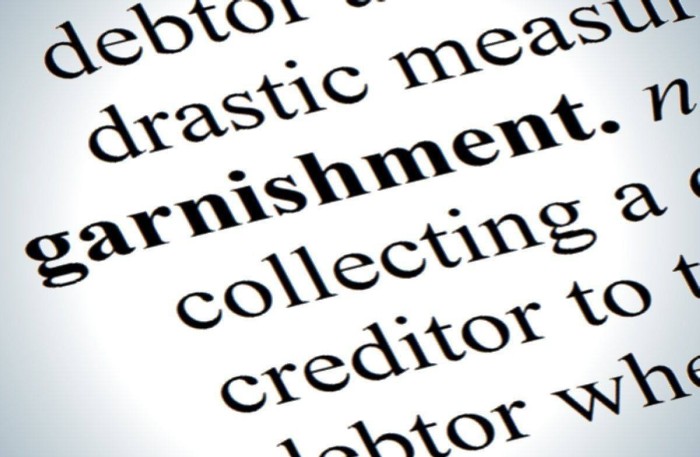Payroll
Labor Department Revises Garnishment Rules
The Labor Department revised its garnishment guidance on earnings under the Consumer Credit Protection Act to include amounts received as lump sums and wages for some tipped workers. The amount of pay subject to garnishment is based on an employee's ...
Mar. 02, 2017

[Reproduced with permission from Payroll Blog, https://www.bna.com/payroll-blog/ (Feb. 10, 2017). Copyright 2017 by The Bureau of National Affairs, Inc. (800-372-1033) http://www.bna.com]
The Labor Department revised its garnishment guidance on earnings under the Consumer Credit Protection Act to include amounts received as lump sums and wages for some tipped workers.
The amount of pay subject to garnishment is based on an employee’s disposable earnings, which is the amount of earnings left after legally required deductions are made. States decide whether (and how much) to garnish from amounts that are unprotected by the CCPA. So, the clarification is important.
The CCPA defines earnings as compensation for personal services, which includes wages, salaries, commissions, bonuses or other compensation, such as periodic payments from a pension or retirement program or payments from an employment-based disability payment program, said Fact Sheet No. 30: “The Federal Wage Garnishment Law, Consumer Credit Protection Act’s Title III,” which was updated in November.
Earnings also may include lump-sum payments, the fact sheet said. Previously, the department said payments must be periodic to be covered earnings.
For tipped employees, earnings include cash wages paid directly by the employer and any tip-credit amount claimed by the employer, for the purposes of the wage-garnishment law, the fact sheet said. Previously, the division said that tips are never earnings because they are a gratuities, not compensation.
Garnishment changes in 2016 extended beyond the federal labor department’s changes to its fact sheet. Several states also saw significant changes to their garnishment laws take effect. Among them:
Effective Sept. 1, Tennessee garnishments directed to an employer must include contract payments to independent contractors under a measure that includes independent contractors within the definition of employees.
Effective July 1, the maximum amount of disposable earnings subject to garnishment in California is not to exceed the lesser of 25 percent of an employee’s weekly disposable earnings or half of the amount in excess of 40 times the greater of the state minimum wage ($10 or $10.50, based on employer size) or the local minimum wage.
Also effective July 1, the maximum disposable earnings subject to garnishment in South Dakota are revised to not exceed the lesser of 20 percent of disposable earnings for the workweek or the amount by which disposable earnings for the week exceed 40 times the federal minimum hourly wage ($7.25) or the state minimum wage ($8.65), if greater.
Effective June 9, West Virginia increased the maximum amount of wages subject to withholding for garnishment to the lesser of the amount that weekly disposable earnings exceed 50 times the federal minimum wage ($362.50) or 20 percent of disposable earnings.
Georgia’s garnishment law was overhauled, effective May 12, clarifying the amounts exempt from garnishment and the options available to quickly recover amounts improperly garnished. Forms are identified that are to be sent with a garnishment notice and safe harbors are identified that are available for garnishees responding in good faith. Nonlawyers may file garnishment answers for garnishees, but lawyers still must represent entities for certain claims.
Finally, in November, the Uniform Wage Garnishment Act became available to states as a model to consider adopting to standardize, simplify and clarify otherwise varied state wage-garnishment laws.
The measure, prepared by the Uniform Law Commission, offers states a standard process for wage garnishments, reducing the burdens and costs faced by employers that do business across multiple states and must comply with different state garnishment requirements.
As under current law, garnishments would begin with a court filing served on an employer, but the employer’s answer would be made directly to the creditor and amounts deducted from employee wages remitted directly to the creditor, not the court.
The measure, which would only apply to debt garnishment and not approved wage deductions, provides garnishment calculation forms and plain-language notices of employees’ rights and obligations.
“The ULC will now begin working with states to enact the uniform act,” said Kaitlin Dohse, the ULC’s legislative counsel. “States will often make stylistic or formatting adjustments when they go to draft their version of the uniform act, but we try to ensure the language is as close to uniform as possible,” she said.
In 2017, only a few states likely would be selected by officials to be approached, said Amy Bryant, an observer to the ULC committee that drafted the measure.
The ULC also is responsible for the Uniform Interstate Family Support Act that was adopted by all states by spring 2016. The organization is a nonprofit that works to create uniformity among state laws.
————-
Christine Pulfrey is an editor and writer for who covers federal and state wage and hour, garnishment, and child support developments for Bloomberg BNA’s Payroll Library publications.
